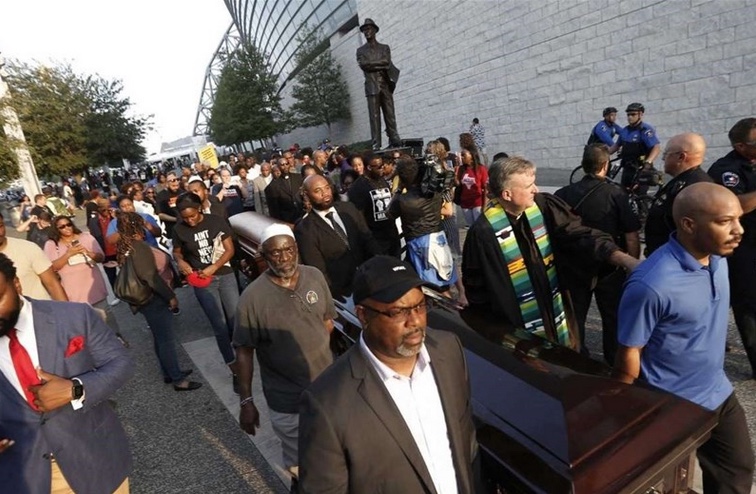On Laity Sunday
/This Sunday for the first time in a long while (perhaps ever?) we will be celebrating Laity Sunday in our morning worship service.
What does that mean? What is “laity” anyway?
In church lingo, everyone is either clergy or laity — clergy are those who have been ordained by the church and set aside to do the specific work of serving communion, baptizing, teaching and preaching, while laity are … well, everyone else! Laity comes from the Greek word “laos,” which simply means people, crowd, nation, or congregation. When we use the word “laity” now, it generally means not just any random group of people, but God’s people, the new people who have been brought into the community which Jesus Christ formed.
However, there’s a dirty little secret about clergy and laity; there is no Biblical basis for this division! The idea that some people are supposed to do God’s work while everybody else has to get on with living ordinary life is not something that Jesus would have taught. In the early church, everyone had a role to play; everyone participated wholeheartedly in the work of spreading the good news of Jesus.
Of course, as the movement grew it became clear that some people needed to dedicate themselves full-time to the work of leading specific faith communities.
But over time, church leaders became more and more elevated in status over the rest of their congregations. They began to accumulate wealth, take on big titles, and enjoy social and political power. This is especially unfortunate because Jesus would never have approved of the kind of status and privilege that these church leaders enjoyed.
In fact, he is recorded as saying to the disciples, “You know that among the Gentiles the rulers lord it over their subjects, and the great make their authority felt. It shall not be so with you” (Mark 10:42). Another time, he explicitly orders them not to give themselves big titles: “Don't let anyone call you 'Rabbi,' for you have only one teacher, and all of you are equal as brothers and sisters” (Matt. 23:8).
Eventually, ordinary churchgoers began to believe that there were two kinds of Christians — the good Christians, who became priests, monks or nuns, and the ordinary, run-of-the-mill Christians, who had to live ordinary lives in the real world, and thus could be forgiven for living less-than-holy lives. Or to put it another way — clergy and laity.
Fortunately, Martin Luther and the Reformers exposed this thinking to be inconsistent with Jesus’ teaching. They began to introduce “ordinary Christians” to the idea that everyone can be a serious disciple of Christ, and that every one of us has spiritual gifts and talents to use on behalf of the common good.
John Wesley continued this emphasis by encouraging laypersons to preach and teach, as well as perform other tasks usually left to clergy. His teaching on sanctification and Christian perfection clearly implied that laity and clergy alike were called to holiness.
That’s your brief history lesson on the clergy/laity division in the church. Fortunately, we United Methodists have attempted to keep Wesley’s teaching alive. In our Book of Discipline, one of the first sections is titled, “The Ministry of All Christians,” and it includes this critical sentence: “All Christians are called through their baptism to this ministry of servanthood in the world to the glory of God and for human fulfillment.”
Notice the phrase all Christians.
Not just the preacher. Or the children’s minister. All Christians.
That means you.
Lest you think I’m overstating the case, here’s a line from the very next paragraph: “Every layperson is called to carry out the Great Commission (Matthew 28:18-20); every layperson is called to be missional. The witness of the laity, their Christ-like examples of everyday living as well as the sharing of their own faith experiences of the gospel, is the primary evangelistic ministry through which all people will come to know Christ and The United Methodist Church will fulfill its mission.”
Again, I would point out that this text says that the witness of the laity is the primary evangelistic ministry through which the church will fulfill its mission. Not the pastor’s ministry. Not the staff’s ministry.
But yours. You, the people.
We clergy aren’t here to do all the work. Rather we’re here to assist you in recognizing the work to which you have been called as God’s people.
We clergy aren’t here to do all the evangelism. Rather we’re here to help you tell your faith story so that others might come to know Jesus.
We clergy aren’t here to do all the pastoral care. Rather we’re here to teach you how to care for your neighbors.
We clergy aren’t here to do all the teaching. Rather we’re here to give you the tools you need to teach.
We clergy aren’t here as missionaries. Rather we’re here to teach you how to be missionaries.
How are we doing?




